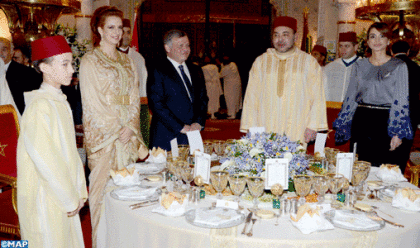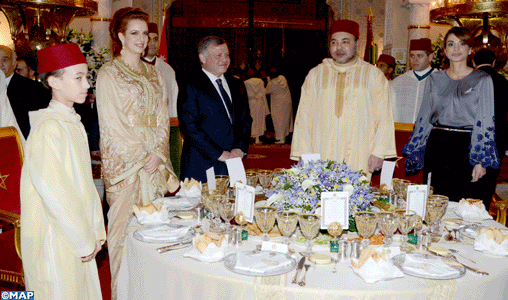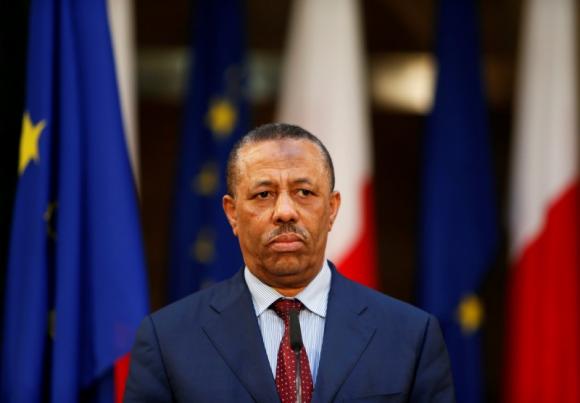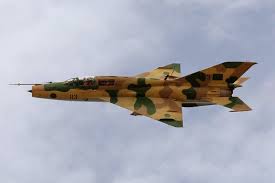 The working visit King Abdullah of Jordan paid to Morocco and the warmth welcome he received from his host King Mohammed VI showed clearly the special ties existing between the two Kingdoms, both among the strongest US allies in the Arab world.
The working visit King Abdullah of Jordan paid to Morocco and the warmth welcome he received from his host King Mohammed VI showed clearly the special ties existing between the two Kingdoms, both among the strongest US allies in the Arab world.
The two leaders held private talks. Yet, some political analysts and diplomatic sources believe the two monarchs had probably reviewed, in addition to bilateral relations, the latest developments in Syria, Iraq, Yemen, Egypt, Lebanon and Libya as well as the US-led international coalition against Isis.
The visit is also an opportunity for the countries to coordinate stands and views on strategic issues of common interests.
Jordan, which has borders with both Syria and Iraq, is hosting hundreds of thousands of Syrian refugees. The country, one of Washington’s major allies in the region, serves as a logistics base for the US-led campaign, and is a hub for intelligence-gathering operations against the jihadists.
Besides Jordan, other Arab countries, including Saudi Arabia, Bahrain and the United Arab Emirates, are taking part in the coalition attacks while Qatar is providing logistical support.
After the brutal killing of a Jordanian pilot captured by the ISIS, Amman stepped up air strikes against Jihadists training camps and sites in Syria.
Both Jordan and Morocco are non-oil producer countries but they are major phosphate exporters and players in the field. The two modern monarchies, supported by the oil-rich gulf countries and the West, have managed to weather successfully the storms of the Arab Spring popular uprisings. They have both ushered in landmark political and constitutional inclusive reforms which helped to consolidate the two countries stability.
Despite the economic and social challenges and sharp criticism from opposition parties, Jordan and Morocco are busy working to open up for more freedoms and attract more foreign investment to create more jobs and speed economic growth.
The governments of the two nations are also making earnest efforts to improve governance, business climate, education, women’s rights, health services, fight against corruption, poverty and illiteracy. They are not afraid of tackling social problems and structural impediments.
Despite their limited resources, Jordan and Morocco have come out of the Arab Spring in a better shape unlike the troubled situation still prevailing in many Arab countries. They offer glittering hope for a better future in the Arab world.
Other countries in the region should get inspiration from the success stories of these two Arab countries. After all, they have not missed their appointment with history. They lived up to the expectations and turned crisis into huge opportunities



